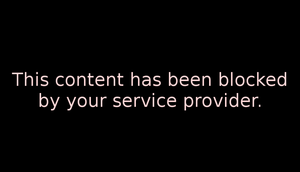
Controversies crop up in the tech industry every year, but this year has been somewhat different, in the sense that a lot of the controversies that we saw this year, have big future implications. Take net neutrality for example, this is the first time the debate was sparked in India and it's sure to affect decisions taken in the coming days. There are others, some that scared people, while others that really made them think. Heere's a look at all of them.

Free the Internet!
The net neutrality debate in India was sparked by telecom service provider Airtel introducing the Airtel Zero plan. Under this, Airtel would not charge users for data used for certain apps. These apps in turn would pay Airtel for such service. This was noted as being against net neutrality practices, as it would provide unfair advantage to certain businesses etc. The debate was further intensified when Facebook allowed users to access certain websites for free through its Internet.org (now Free Basics) programme.

This dragon is red hot!
Qualcomm's flagship processor for the year, the Snapdragon 810, was riddled with heating issues. Reports of this started coming in even before the processor made it to the market and Qualcomm initially denied it. It didn't matter though, because, as we saw in the Sony Xperia Z3+, the Snapdragon 810, had major heating issues. The problems were later curbed in devices like the OnePlus 2 and the new Lumias though.

There's no Kojima in Konami
Video game legend Hideo Kojima's exit from Konami was one of the biggest WTF moments of the year. The story goes, Konami's bet on mobile gaming wasn't in line with Kojima's artistic vision, and the rest as they say is history. Metal Gear Solid V: The Phantom Pain's huge production budget may also have something to do with it though. Many have said Kojima had become bigger than the company itself and his studios were just too expensive for Konami to maintain.

On the Internet, there's no place to hide..
Imagine your greatest secrets being held by an unknown entity who you have never heard of. That's just what happened with Ashley Madison, which has 40 million users, interested in one thing, affairs. The website was hacked and user data released online. This of course created a massive spill worldwide, since well, secrets are secrets for a reason.

Hello...can you hear me?
The Indian government finally recognised the call drops issue this year, but that sparked another debate. Telcos spoke against laws and misinformation, stating that they weren't allowed to install enough cell towers. The government on the other hand was of the opinion that telcos weren't doing enough to avoid said call drops issues. The conclusion? Telcos will have to pay users for every dropped call from next year. How will it be monitored? Our guess is as good as yours!

Windows is free, no it's not, no wait it is...
Microsoft seemed hell bent on confusing everyone before launching Windows 10 this year. While the new version of Windows may wash away memories of the horrendous Windows 8 experience, many still don't know what the free part really meant. Microsoft originally said Windows would be available for free to every one, then said it won't, then said it will be free even to pirated users. Finally, it was recognised that Windows 10 would be a free update for Windows 7 and above users, but being a service now, you'd have to pay a subscription fee from next year onwards.

Riding down the wrong roads..
The crackdown on on-demand taxi services, including Ola and Uber, started long ago, with the infamous Uber rape case. Since then though, the companies have been called up again and again for not complying to Indian radio taxi laws. In fact, it is still not clear whether these companies are in the green zone in the government yet.